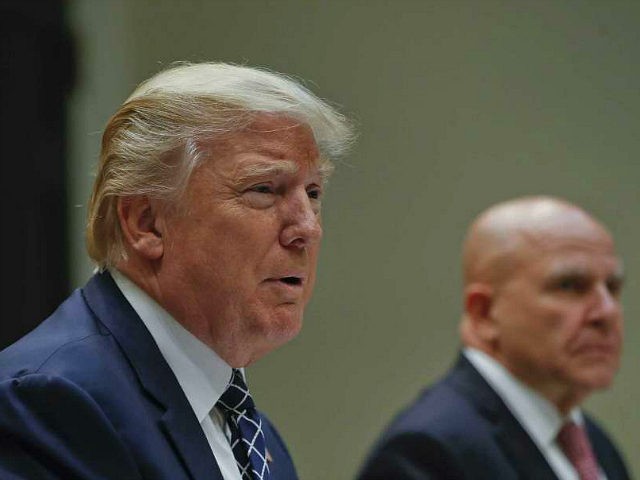Not long after announcing that it would certify Iran’s ongoing compliance with the JCPOA or “nuclear deal,” the Trump administration announced new sanctions against Iran and its Islamic Revolutionary Guard Corps for what Treasury Secretary Steven Mnuchin described as “malign activity.”
Mnuchin said the sanctions would “send a strong signal that the United States cannot and will not tolerate Iran’s provocative and destabilizing behavior,” and stressed that Iran would be pressured to stop both ballistic missile research and deploying the IRGC to destabilize other countries in the region.
The State Department also expressed deep concern about “Iran’s malign activities across the Middle East which undermine regional stability, security, and prosperity” in a statement released on Tuesday.
State Department spokeswoman Heather Nauert cited Iran’s support for terrorist groups like Hezbollah, Hamas, and Palestinian Islamic Jihad against the government of Israel; Iran’s support for the regime of Bashar Assad in Syria; and its provision of advanced weapons to the Houthi rebels in Yemen as reasons for the new sanctions.
Nauert noted that the JCPOA was premised on signatories making positive contributions to “regional and international peace and security,” but Iran actively undermines such positive efforts from other nations. Of course, she also referenced Iran’s ballistic missile program, which she said was in defiance of U.N. Security Council resolutions.
The new sanctions cover 18 entities and individuals accused of supporting Iran’s ballistic missile program and the activities of the IRGC, plus an “Iran-based transnational criminal organization and associated persons.”
Among the objectionable support provided to the Revolutionary Guard Corps is the “production and maintenance of fast attack boats for the IRGC Navy,” which has a propensity for using those boats to harass ships in international waters.
The State Department additionally condemned Iran for detaining U.S. citizens and others on “fabricated national-security related charges,” and called upon Tehran to “release U.S. citizens Baquer Namazi, Siamak Namazi, and Xiyue Wang, and all other unjustly detained U.S. citizens, so that they can be reunited with their families.”
Iran’s “egregious human rights record, which includes denial of the freedom of religion or belief as well as other human rights and fundamental freedoms” was also cited by the State Department. One of the listed offenses involves the coercion of Afghan refugees to fight for Iran in Syria.
The New York Times notes that not all of the entities targeted by the new sanctions are Iranian: “They included a Turkey-based supplier of marine equipment and a China-based procurement agent that the Treasury Department said had provided material and support to an Iranian military electronics company.”

COMMENTS
Please let us know if you're having issues with commenting.